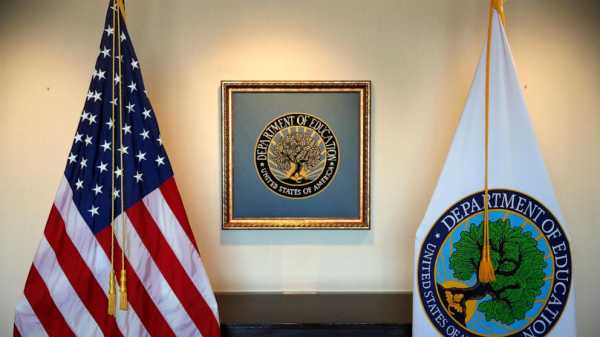
WASHINGTON — College programs that leave graduates underpaid or buried in loans would be cut off from federal money under a proposal issued Wednesday by the Biden administration, but the rules would apply only to for-profit colleges and a tiny fraction of programs at traditional universities.
The Education Department is calling it a significant step toward accountability for the nation's colleges. With more students questioning the value of a degree, the measure aims to weed out low-performing programs and assure students the cost of tuition will pay off in the long run.
“Investing in a college degree or career certificate is supposed to pay off — instead, too many students are getting ripped off every single year,” Education Secretary Miguel Cardona said in a call with reporters.
Opponents, however, say the scope is too narrow to help most students.
Known as gainful employment, it revives an Obama-era policy that was dismantled by the Trump administration before it took full effect. It was enacted amid a federal crackdown on for-profit colleges that contributed to the closure of several chains accused of fraud, including Corinthian Colleges and ITT Technical Institute.
Like the Obama rule, the new proposal would apply to all programs at for-profit colleges, but only to certificate programs at traditional universities. Opponents say it creates a double standard, with the potential to kill off hundreds of programs at for-profit colleges while leaving other programs unscathed even if they leave students buried in debt.
“The rule unfairly targets programs at proprietary institutions and fails to account for the unique challenges facing students and communities that career-oriented programs serve," said Jason Altmire, president and CEO of Career Education Colleges and Universities, an industry trade group.
The proposal could take effect no sooner than July 2024. The federal government must first collect and review public comment. It’s sure to draw outrage from Republicans in Congress, who have called the policy an attack on the entire for-profit college industry.
The proposal would put college programs through two tests to determine whether they're serving students well.
The first test would check whether a program's graduates carry heavy student debt compared to their earnings. Programs would pass if their graduates have annual loan payments averaging no more than 8% of their total income, or 20% of their discretionary income.
A second test would check whether at least half of a program's graduates earn more than working adults in their state with only a high school diploma.
Programs that fail at least one test would need to warn students that they're at risk of losing federal money. Those that fail the same test twice in any three-year period would be cut off from federal aid. That amounts to a death sentence for most programs, especially at for-profit colleges that rely heavily on students who use federal financial aid to pay for tuition.
The Education Department says the rule would help an estimated 700,000 students who would otherwise enroll at one of nearly 1,800 low-performing colleges.
Cardona said the agency can't keep sending taxpayer money to programs “that cost students an arm and a leg and then leave them in a ditch, unable to climb the economic ladder. It’s not right and it’s not sustainable.”
A separate part of the proposal would release new information showing students the true cost of programs across all types of colleges. The Education Department would publish data detailing the amount students pay for individual programs — including, tuition, fees and books — along with their student debt levels and earnings after graduation.
“We need to equip students and families with the facts before they take on a mountain of debt," Cardona said.
The rule is expected to put many for-profit college programs in jeopardy. At nonprofit colleges, it would have no effect beyond certificate programs, which often focus on career training. It would not apply, for example, to bachelor's degrees or most graduate programs.
Supporters say the policy targets the riskiest programs. Students who attend for-profit colleges typically borrow more and default on their loans at higher rates. Student Defense, an advocacy group, called it a strong proposal that establishes “basic rules of the road” for colleges.
The proposal comes at a time of flagging faith in higher education. Fewer young Americans have been going to college, a shift that experts attribute to rising tuition costs, a strong job market and the shortcomings of pandemic schooling.
Hoping to restore public trust, the Education Department has been exploring how to hold colleges accountable for the outcomes of their graduates.
The agency is separately working on a list that would identify low-value programs across all colleges. It would publicize the list as a resource for students, but without the threat of a financial penalty.
___
The Associated Press education team receives support from the Carnegie Corporation of New York. The AP is solely responsible for all content.
Sourse: abcnews.go.com






